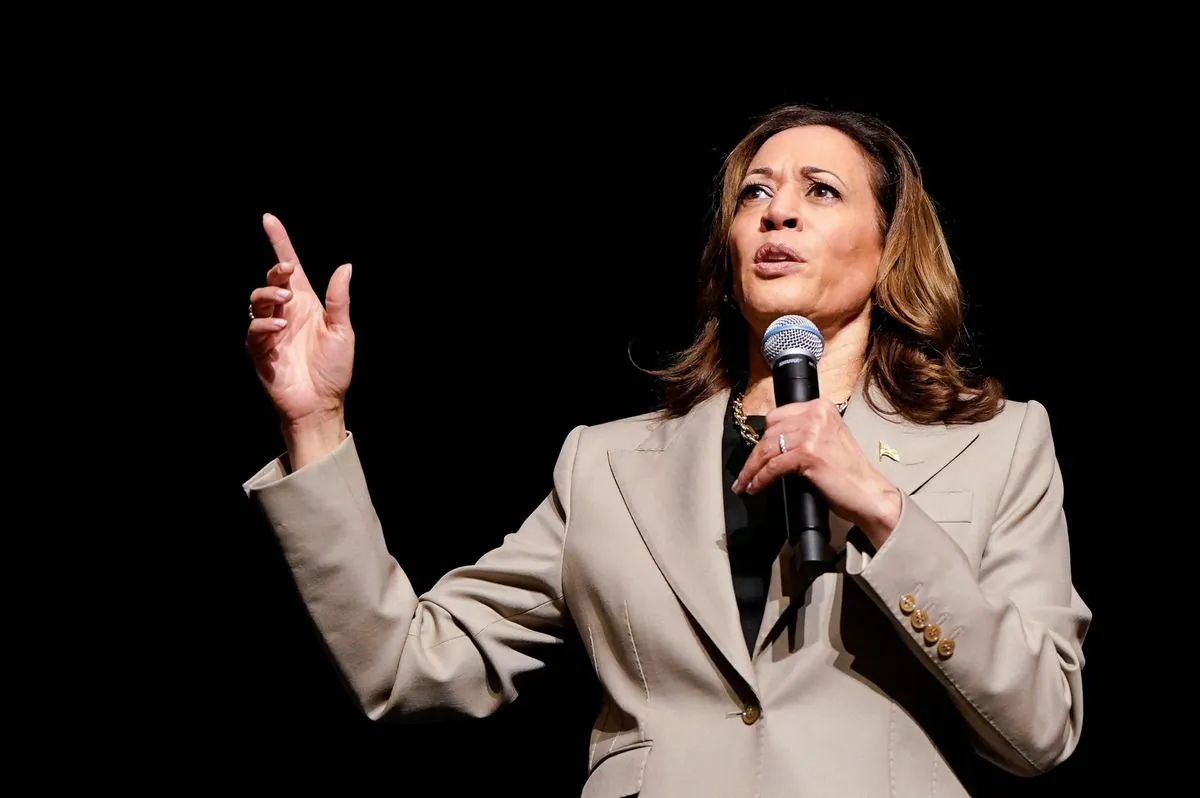In a strategic move to address inflation and housing concerns, Vice President Kamala Harris has unveiled a new advertising campaign highlighting her ambitious plan to construct 3 million new homes over a four-year period. This initiative, aimed at easing inflationary pressures, stands in stark contrast to the approach of Republican candidate Donald Trump.
The minute-long advertisement showcases Harris' personal experience with housing challenges, recounting her upbringing in rental properties while her mother saved for a decade to purchase a home. The campaign targets crucial swing states such as Arizona and Nevada, where housing affordability remains a pressing issue.
Harris' proposal extends beyond increasing home construction, offering up to $25,000 in assistance for first-time homebuyers. This comprehensive approach addresses the ongoing challenges in the U.S. housing market, which has faced rising prices and limited inventory in recent years. The focus on housing costs is particularly relevant as they significantly impact the Consumer Price Index (CPI), a key measure of inflation.
In a surprising political shift, former Democratic Representative Tulsi Gabbard has endorsed Trump's presidential bid. This move marks a significant departure from her previous position within the Democratic Party, which she sought to represent in the 2020 election. Gabbard's endorsement aligns her with Trump's criticisms of Harris and the withdrawal from the Afghanistan War, which ended in 2021 after becoming the longest war in U.S. history.
Meanwhile, the Democratic Party is taking legal action in Georgia, a state that has become increasingly pivotal in recent presidential elections. The lawsuit challenges two rules recently adopted by Georgia's State Election Board, which Democrats argue could potentially delay the finalization of election results.
"These rules violate state law that mandates certification as a mandatory duty. We are asking the judge to invalidate these rules as the State Election Board is exceeding its legal authority."
The legal challenge reflects the ongoing partisan struggle over voting procedures in Georgia, a battle that predates the contentious 2020 presidential election. This dispute highlights the complex interplay between state and federal authority in election administration, as granted by the U.S. Constitution.
As the 2024 election approaches, these developments underscore the multifaceted nature of the campaign, encompassing policy initiatives, shifting political alliances, and legal battles over election processes. The outcome of these issues may significantly influence the electoral landscape in key swing states and shape the future of U.S. housing policy and election administration.
